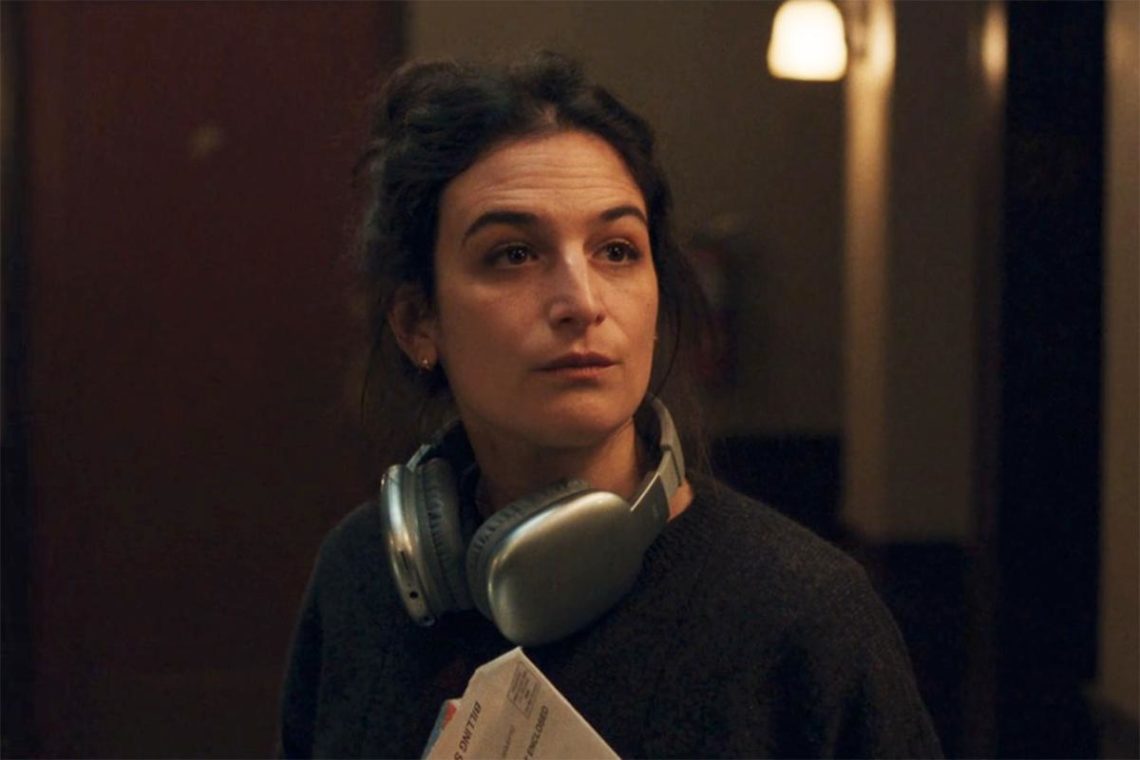In an attempt to honor what this episode of Dying for Sex was at least attempting to do, this review will not be mincing words about some of the roughest stuff there is to talk about. So please consider this a warning before proceeding.
I was sexually abused as a child. Like Molly, Dying for Sex’s protagonist, it only happened once, though what was done to me was nowhere near as severe and traumatic as what was done to her. Like Molly, I’ve been haunted by it on and off ever since, though again not to her degree. Like Molly, I suspect it’s cast a long shadow over my sexual life, including the kind of kink I enjoy. It’s not as present a presence in my life as it is in hers — I don’t see my abuser like they’re there in the room with me — but it’s there. It’s alright. It is what it is.
At one point during this episode, Molly reads aloud to Nikki an account of that terrible night — how the man roofied Molly’s mom, how Molly saw this but didn’t say anything, how she was unable to rouse her mother for help, how she wound up apologizing to her abuser for striking him with a hairbrush in an attempt to escape.
It’s hard to watch. It’s hard to listen to. As the scene progressed I found myself getting sadder and sadder — not for Molly and not for myself, but because we live in a world where something so profoundly unfair happens to so many children. We live in a world run by men actively working to make things less safe for the vulnerable, so that more children suffer. I felt discomfort, rage, despair, catharsis. I felt a lot of things.
Then Molly farts.
What are we doing here, man. What are we doing?
Far be it from me that no one’s ever passed gas at a dramatically inappropriate moment. On a far less serious note than this one, I’ll never forget being on hour two or so of the most difficult English final exam I’ve ever taken, when someone in the lecture hall let out a toot that had an inquisitive, uptalk sound to it, as if asking the professor a question. A fight with an ex ended abruptly when I began having what I’ll euphemistically refer to as “stomach troubles.” It happens.
Did it have to happen here, though? I get the concept of comic relief, and I can only speak for myself, but as an abuse survivor I really don’t want anyone to fart while I’m being asked to relive a core trauma, thank you very much. I’m sitting there with tears in my eyes, holding back sobs of recognition and grief, mourning the seven-year-old in a ballerina outfit who, Molly and Nikki later agree, stopped being a child that day — and Molly cuts the cheese? To use a metaphor that’s very Dying for Sex, it’s a real kick in the dick.
It’s ironic, because the name of the game this episode is setting boundaries and knowing when to try to expand them. On one hand, Nikki realizes Molly is deliberately sabotaging her relationships with both Neighbor Guy and overworked, underappreciated Nikki herself because, as Molly herself puts it when confronted, she doesn’t want to be happy.
After a disastrous New Year’s Eve date in which Molly ditches Nikki and sneaks out of the hospital to give some karate dojo owner an unsuccessful handjob, Nikki finds her back at her apartment. She tells Molly that she doesn’t have to be happy, which is true and good and fair. She tells her that she’s finally really grieving what happened to her as a child, and honestly it’s even harder to hear what happened than how I’ve described it. It’s not the physical violation, though it’s that too, it’s the fact that this fucker told her he loved her and made her say it back to him, tainting every subsequent “I love you” in her life. It’s the fact that when she tried to hold his hand, he swatted it away and told her to “stop being a child,” which she essentially did from that moment on.
But the thing is that while all of this is true, so too is the fact that Molly is (understandably!) too preoccupied with her dark past and dark future to appreciate the extent to which Nikki has blown up her whole fucking life to help her. Unemployed, her career as an actor over along with the best relationship she’s ever had, she’s sleeping on Molly’s couch and hanging out on the tile floor in the hallway outside when Molly’s busy with her partners. When she celebrates Hanukkah with her sister (Tracee Chimo Pallero) out there, the sister asks her point blank, “Does she know what you’re doing for her?”
It’s very odd that this doesn’t come up in their episode-ending conversation together, because it feels pretty important to me. Instead, Molly does some interpretive dance that helps her exorcise her demons, per the instructions of her increasingly corny palliative care counselor, Sonya, who’s like an Oh Joy, Sex Toy! comic come to life (pejorative). That’s great, but Nikki’s life is no less a shambles now than it was before Molly started feeling the Holy Ghost.
Molly does, at least, achieve a real resolution and rapprochement with Neighbor Guy. (She has him listed as such in her phone contacts, which is a cutesy bridge too far, Dying for Sex. Just give him a name!) Though she ignores his calls for a long time after he tells her he loves her, she eventually bumps into him one spring afternoon as he walks home with a couple New York slices. Just as she turns to pursue him and finally tell him how she feels, she collapses, faceplanting on the concrete. He lies right down there with her to call 911, and it’s there, prone on the ground, that they finally exchange I Love Yous, for real.
Molly’s whole story has been one of setting up self-defeating boundaries, like the one between her and Neighbor Guy. I’m glad to see that one come down. But it’s also a story of not respecting the boundaries of the most important person in her life. Even if, as she says, she never asked Nikki to sacrifice everything for her? As Nikki replies, Molly asked if she could die with her, and everything else flows from that.
I get that Molly has boundary issues. I get why. Boy, do I ever. But time and again, Dying for Sex just defaults to the Mollycentric perspective. In some ways she’s been dealt a terrible hand by life. In other ways she’s been dealt an extraordinary one: she doesn’t have to work or support herself for some reason, her estranged husband keeps her on his insurance, her best friend gives up her entire life to care for her, she’s gorgeous enough to land basically any guy who catches her eye, she’s a natural at being a dom, her ideal sub is the slob across the hallway, you name it. Don’t let her off the hook for the ways she’s taken these advantages for granted, and don’t use fart jokes to let the air out of the room.
Sean T. Collins (@theseantcollins) writes about TV for Rolling Stone, Vulture, The New York Times, and anyplace that will have him, really. He and his family live on Long Island.
The post ‘Dying for Sex’ Episode 6 Recap: Here I Sit All Broken-Hearted appeared first on Decider.




